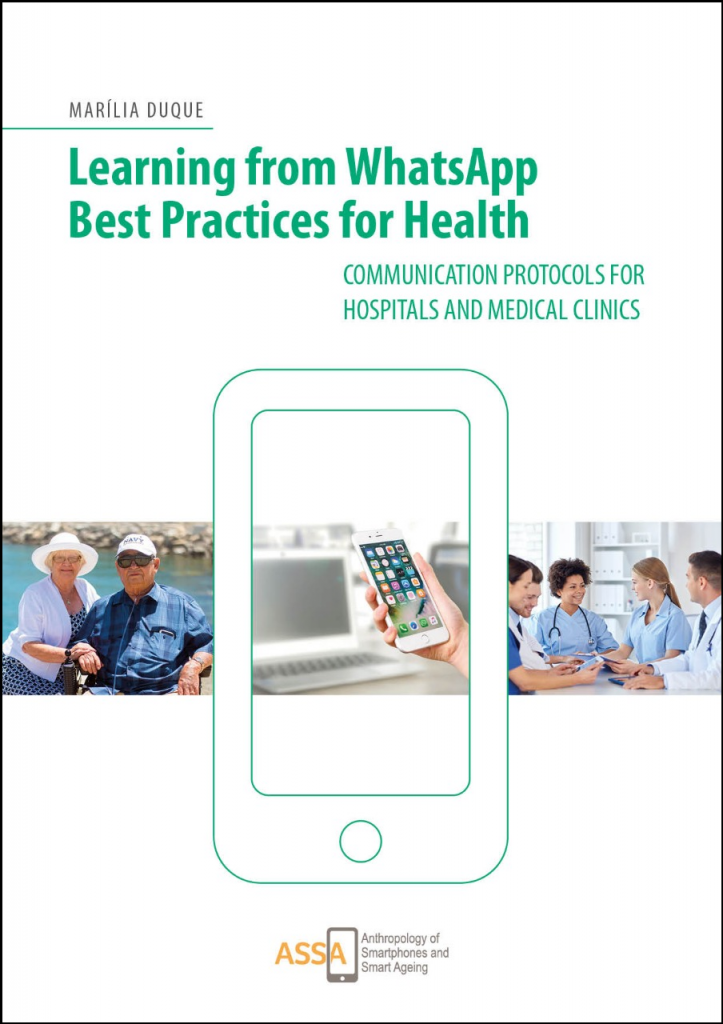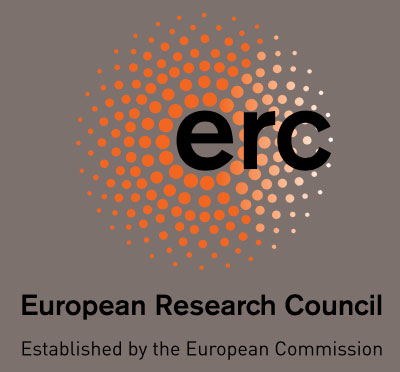Learning from Whatsapp: Best Practices for Health
We are pleased to announce that ASSA researcher Marília Duque has just published the English language version of her ‘Learning from Whatsapp: Best Practices for Health’ eBook, which is intended as an open-access resource and can be downloaded for free. The book originally appeared in Brazilian Portuguese, and its translation into English was funded entirely by the ERC.
“Learning from Whatsapp…” is a collaboration between ESPM São Paulo, where Marilia Duque’s PhD research is based, and the Anthropology of Smartphones and Smart Ageing project, funded by the European Research Council and registered under the name ERC–2016–Adg–SmartPhoneSmartAging–740472.
What is the eBook about?
The Learning with WhatsApp Best Practices for Health handbook aims to serve as a reference for the possible uses of WhatsApp in the healthcare system.
WhatsApp can be used as a support tool for healthcare communication, with protocols enabling the interface to be used among and between patients, healthcare professionals, carers and family members. This handbook explores how the app’s basic features can be used by the healthcare ecosystem, aiding remote care and making it more efficient in terms of money and time in addition to improving the quality of life of patients. The protocols are divided into modules (see below for explanation), including routine patient communication and triage, remote healthcare, proactive health management, and education processes. Modules can be implemented independently. Each module brings together all of the WhatsApp features mapped around its purpose.
What is the book based on?
The communication protocols in the guide were designed for hospitals and medical clinics based on formal and informal care practices observed by the author while conducting ethnographic research for 16 months in São Paulo.
What do you mean by protocols, and who can benefit from them?
Whatsapp’s potential for helping people stay connected for health purposes has already been recognised by the World Health Organization (WHO), which partnered with the app to issue health alerts during the Coronavirus pandemic in 2020. However, the “Learning from Whatsapp” book goes further than this, taking practices that already happen in real life (patients messaging their doctor, doctors and nurses communicating via chats) and codifying them into a set of organised protocols that show how the app can be used for routine patient communication and triage, remote healthcare, proactive health management, and education processes.
This is an open-access, not-for-profit project based on evidence stemming from academic research. If used or piloted, the protocols proposed here should be adapted to the objectives of medical professionals.
Why Whatsapp?
Whatsapp is a free service, and is the world’s most popular chat app, with over 1.5 billion active users around the world.
While conducting fieldwork, Marília found that using already existing apps for purposes such as health and care meant that existing barriers to digital health access are effectively removed – if the user is already using the app to stay in touch with friends and family, it is much more likely that they will adhere to health advice they receive via this channel, as well as being much more likely to pay attention to any incoming messages. This resonates with the overall findings of the ‘The Anthropology of Smartphones and Smart Ageing’ project.
Whatsapp is also perceived as a particularly user-friendly messaging app with a clean and simple to use design – this means that groups that are ordinarily excluded from accessing it, such as non-tech-savvy segments of the population, or older people, are able to use it.

Download English version (61 MB)
I would like to provide feedback on the book. How do I do this?
This eBook is a collaborative piece of research aimed at sharing best practice with healthcare professionals around the world. If you are keen to trial the protocols described in the book or have done so already, we are keen on hearing from you.
If used or piloted, the protocols proposed here should be adapted to the objectives of medical professionals. The protocols would also be subject to local health regulations and other requirements.
To give us feedback on the eBook, please email the author, Marília Duque, at mariliaduque@gmail.com, or alternatively, contact Daniel Miller at d.miller@ucl.ac.uk.
How do I cite this book?
The correct way to cite this book is the following (please modify the format according to citing styles and requirements):
DUQUE, Marília. Learning from WhatsApp Best Practices for Health: Communication Protocols for Hospitals and Medical Clinics. Marília Duque. London: ASSA, 2020. 151 pages. ISBN: 978-1-8380069-0-7 (eBook)
This material is the result of not-for-profit academic research. WhatsApp is neither responsible for nor can it attest to the validity or effectiveness of any protocol gathered in this material. Protocols are records of third-party uses observed in the health ecosystem during this research.
Whatsapp Inc is part of ‘The Facebook Companies’. For more information on the Facebook Companies, please visit: https://www.facebook.com/help/111814505650678
Any third party trademark referenced in this material is the property of its legal owner. Any third party trademark reference is for descriptive and illustrative purposes only.


